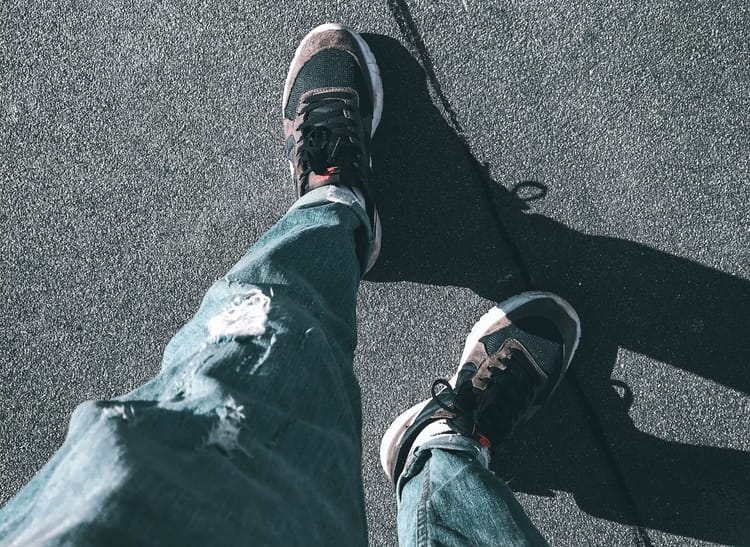Talking Teen Dating Violence Awareness Month 2020 with Break the Cycle

February 2020 marks the 10th anniversary of Teen Dating Violence Awareness Month (TDVAM). We sat down with Jasmine Uribe of Break the Cycle, an organization whose mission is to inspire and support young people to build healthy relationships and create a culture without abuse.
Uribe joined Break the Cycle in 2010 and now serves as its Chief Program Officer. With nearly 15 years of experience working with youth and communities, she is a leader in the dating abuse prevention movement. Her passion for education, community-centered programming, and youth leadership is evident in the various resources, curricula, and speaking engagements she’s created and facilitated nationwide.

First, what is Break the Cycle? Tell us a little about your work.
Break the Cycle is the leading national organization working directly with youth ages 12 to 24 to end relationship violence. We recognize the leadership and voices of youth and share our expertise with them to create innovative programs and resources that inspire activism. Our programs include legal services, prevention education, training and capacity building, communications, community outreach, and activism. We work with youth and adult allies in person and online—building community and enhancing our efforts to engage all youth, because everyone deserves a healthy relationship.
February is the 10th anniversary of Teen Dating Violence Awareness Month. How is Break the Cycle commemorating this year?
Break the Cycle has led efforts in the space of Teen Dating Violence Awareness Month, themes, and activities since 2010. We have prioritized youth leadership and engagement over the years by building a committee of youth to lend their expertise and lead the development and implementation of the month. This year, youth leaders from Let’s Be Real (Break the Cycle’s youth movement) and our staff worked together to create a theme that recognizes the growth and awareness achieved in the last 10 years.
Break the Cycle connected with over 200 organizations and professionals in the field to plan and prepare for 2020 efforts. We have also connected with local and national government officials and entities, to ensure they are aware of events that are happening in the community. Most importantly, Break the Cycle is continuing to lift the voices and stories of survivors and youth who are often marginalized. We are shedding light on the intersections of violence and acknowledging that many social justice matters impact the ability for youth to build and maintain healthy relationships. We are using this momentum throughout the year and coining the theme “Outrage into Action” as a motto for our efforts to end relationship violence.
There’s power in social media, conversation, and action, and it’s all the more powerful when it’s led by the voices of youth.
We love the theme “Outrage Into Action.” How can teens and allies turn their anger into positive change?
Outrage manifests into several emotions—anger, frustration, sadness, disappointment. We are calling on everyone to use these feelings to fuel positive change in a variety of ways, but the easiest is to start the conversation and create a visual for solidarity—like art for #ChalkAboutLove week (Feb 24th – 28th) or a statement on social media during the Online Rally (Feb 19th). Teens and allies can check out the resources and calendar in the Outrage Into Action toolkit and follow, post, and tag online using #TDVAM20 and #OutrageIntoAction in their efforts. Some notable days for action are:
- February 11th – Wear Orange Day – An annual initiative to show solidarity and call for love and healthy relationships. #Orange4Love #TDVAM20
- February 19th – Online Rally – Follow @breakthecycle on Instagram and @breakthecycleDV on Twitter for a day full of facts and graphics to share. Tag people in your community to join the conversation.
We encourage everyone to use their voice in ways that feel comfortable to them—whether it’s a short video, an art display, or a simple repost of something that you see from Break the Cycle or another organization on social media. It’s all about using our voices to create change, calling out the toxic behavior in relationships, and acknowledging the role of building community to end relationship violence.
What are the biggest changes and accomplishments you’ve seen in teen dating violence awareness and prevention over the course of 10 years?
Awareness and education. In 2010, many professionals outside of the field of domestic violence were still trying to understand the term “dating violence” and the fact that teens experience abuse in their relationships. We moved away from the “puppy love” and “boys will be boys” rhetoric and instilled notions of consent and accountability—holding boundaries and respect as a priority in relationships. In the past 10 years, we’ve seen a shift in how relationships are built, especially when it comes to how technology plays into abusive behaviors, and how teens navigate cyber abuse.
The most notable shift in this movement has been the connection to youth. This is something Break the Cycle has valued since our founding years in the 90’s. Now we can see this commitment and connection with youth come to life as advocates—many between the ages of 13 and 18—lead campaigns, policy change, and take bold moves to create a world where their peers recognize warning signs of abuse. Social media has also done a lot of good in terms of awareness and unity. Through hashtags and campaigns, we’ve built communities with youth and allies nationally and internationally. There’s power in social media, conversation, and action, and it’s all the more powerful when it’s led by the voices of youth.
There are young people who may not know that they are in an abusive or unhealthy relationship. What are the signs you recommend people look for?
Some of the biggest signs to look out for are jealousy, isolation, control, shame, blame, and guilt. These behaviors often manifest in verbal accusations, controlling where you go, who you talk to, or even what you wear. Many times abusive partners will “joke” about something or put down a partner in front of their friends. They may make it seem like it’s not a big deal, but it is. In a healthy relationship, your partner makes you feel good, happy, excited and loved. In an unhealthy relationship, your partner will make you feel ashamed, embarrassed, guilty, worthless, or scared. These are subtle emotions and behaviors that often go ignored—abuse isn’t just physical. Once it gets physical, there’s usually a trail of verbal and emotional abuse that precedes that behavior or incident.
What would you say to someone who is in an unhealthy relationship?
If you are experiencing abuse, trust your gut. If something feels wrong, it probably is. Reflect on the behavior that you think is unhealthy, and know that this abuse is not your fault—no matter what your partner may say. Once you have determined that you are in an unhealthy relationship, look up some resources for help. Using tools like a Healthy Relationship Quiz or Safety Plan can help you through the next steps. Breaking up is not easy, especially when you care deeply about someone and you remember the “good times,” but remember you deserve to be in a healthy relationship. Help is available when you are ready.
How can our supporters get involved in ending teen dating violence?
Supporters can use social media and conversation as a tool for education and thought-provoking conversation. Break the Cycle leads Real Talks across the country, and anyone can host one! Host a Real Talk about the signs of abuse, traits for building healthy relationships, how to help a friend, or how parents can help teens recognize warning signs of abuse. Use media and storytelling to make the connection. For example, if the media portrays something that is abusive as a funny joke or something not to be taken seriously, call it out. Have a conversation about that messaging and use it as an example of what not to do in a relationship.
Break the Cycle has a wealth of resources and coalitions for youth (Let’s Be Real) and adults (Love is Not Abuse). Getting involved is as simple as following organizations doing great work on social media, signing up for a newsletter, or connecting with a school/organization to lead a workshop. It’s time to lift the veil of silence and shame and acknowledge that these behaviors don’t need to happen in relationships, and we can put an end to this together.
If you are a young person who is experiencing dating violence, visit Break the Cycle’s website for resources or contact the National Domestic Violence Hotline at 1-800-799-7233.
Together We Can End Domestic and Sexual Violence






